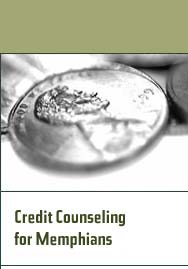

What is the Earned Income Credit (EITC)?
The EITC is a tax benefit for low-income workers. For those who owe federal income tax, it can reduce or eliminate the tax they owe, and some workers can get money back. Even workers who don’t owe income tax can qualify. These workers receive their entire EITC in a check from the IRS.
In tax year 1999, about 19 million working families and individuals received more than #30 billion in EITC benefits. The average family’s credit was over $1,800. The EITC now brings more people out of poverty than any other federal program or combination of programs — 4.7 million in 1999.
Very low-income workers who are not raising children are eligible for a small EITC — worth up to $364. The average credit was about $200 in tax year 2000.
Who can get the EITC?
Eligibility for the EITC depends on a family’s size and income:
- Families with one child who earn less than $28,281 in 2001 are eligible for a credit of up to $2,428.
- Families with two or more children who earn less than $32,121 in 2001 are eligible for a credit of up to $4,008.
- Workers without a qualifying child who earn less than $10,710 in 2001 are eligible for a credit of up to $364.
- In most cases, the EITC will not affect eligibility or benefit levels for federal assistance programs, including TANF, Medicaid, food stamps, SSI, or public or subsidized housing.
Why does welfare reform increase the need to do outreach on the EITC?
EITC outreach is more important than ever! Each year, hundreds of thousands of eligible workers fail to claim their EITC. Many workers have simply never heard of it. Others don’t know how to apply. Still other workers who earn too little to owe income taxes think they are ineligible for the credit.
As states begin to impose time limits on the receipt of welfare benefits, an increasing number of workers with children are entering the low-wage labor market. The EITC can be a critical wage supplement for these families. The Advance Payment Option, which can increase take-home pay by more than $110 per month, will be especially important.
The Center is intensifying efforts to ensure public and private agencies involved in helping individuals make the transition from welfare to work — including job training programs and employers — have the EITC outreach materials they need. We urge you to join us by encouraging such organizations to become involved in the campaign.
Also, many workers who do file for the EITC are paying commercial preparers to fill out their forms. Most don’t know that free tax help is available.
How Can I Get EITC In My Paycheck In the Year 2002?
You may prefer to get some of next year’s EITC throughout the year, rather than wait and get EITC after you file your tax return. Chapter 6 explains advance payment of EITC and tells how, if you have a qualifying child, you may be able to get some of the EITC in your paycheck.
Important Change for 2001
Kidnapped child. You may be able to claim the EITC for persona with a qualifying
child even though your child has been kidnapped. See Kidnapped child in chapter
2.
Important Changes for 2002
New definition of earned income. For tax years after 2001, earned income will
no longer include employee compensation that is nontaxable. This will change
Rule 6 and Rule 14.
Elimination of modified adjusted gross income (AGI). For tax years after 2001, you will no longer need to figure modified AGI. Your EITC will be figured using your AGI, not modified AGI. This will change Rule 15.
New rules for persons with same qualifying child. For tax years after 2001, new rules will be used to determine which person can claim the EITC on the basis of a qualifying child when two or more persons have the same qualifying child. This will change Rule 8. For details, see Publication 563, Highlights of 2001 Tax Changes.
New definition of eligible foster child. For tax years after 2001, the definition of an eligible foster child in Rule 7 will change. The child will have to live with you only for more than half of the year, instead of the whole year.
Reduction of EITC by alternative minimum tax eliminated. For tax years after 2001, your EITC will no longer be reduced by the amount of alternative minimum tax shown on your return.
Important Reminders
Earned income credit, has no effect on certain welfare benefits. Any refund you receive because of the EITC and any advance EITC payments you receive will not be considered income when determining whether you are eligible for the following benefit programs, or how much you can receive from these programs. However, if the amounts you receive are not spent within a certain period of time, they may count as an asset (or resource) and affect your eligibility.
- Temporary assistance for needy families (TANF).
- Medicaid and supplemental security income (SSI).
- Food stamps.
- Low-income housing.
Disallowed EITC. If you claim the EITC and it is later disallowed, you may have to complete an additional form if you want to claim the credit in a later year. See chapter 5 for more information.
Reporting advance payments of EITC received in 2001. If you received advance payments of EITC in 2001, you must file Form 1040 or Form 1040A to report the payments.

|
The following agencies are nonprofits and offer credit counseling to Memphis-area citizens: Memphis Consumer Credit Association 321-6730 Consumer Credit Counseling Service 800-255-2227 ClearPoint Financial Solutions 276-2000 |